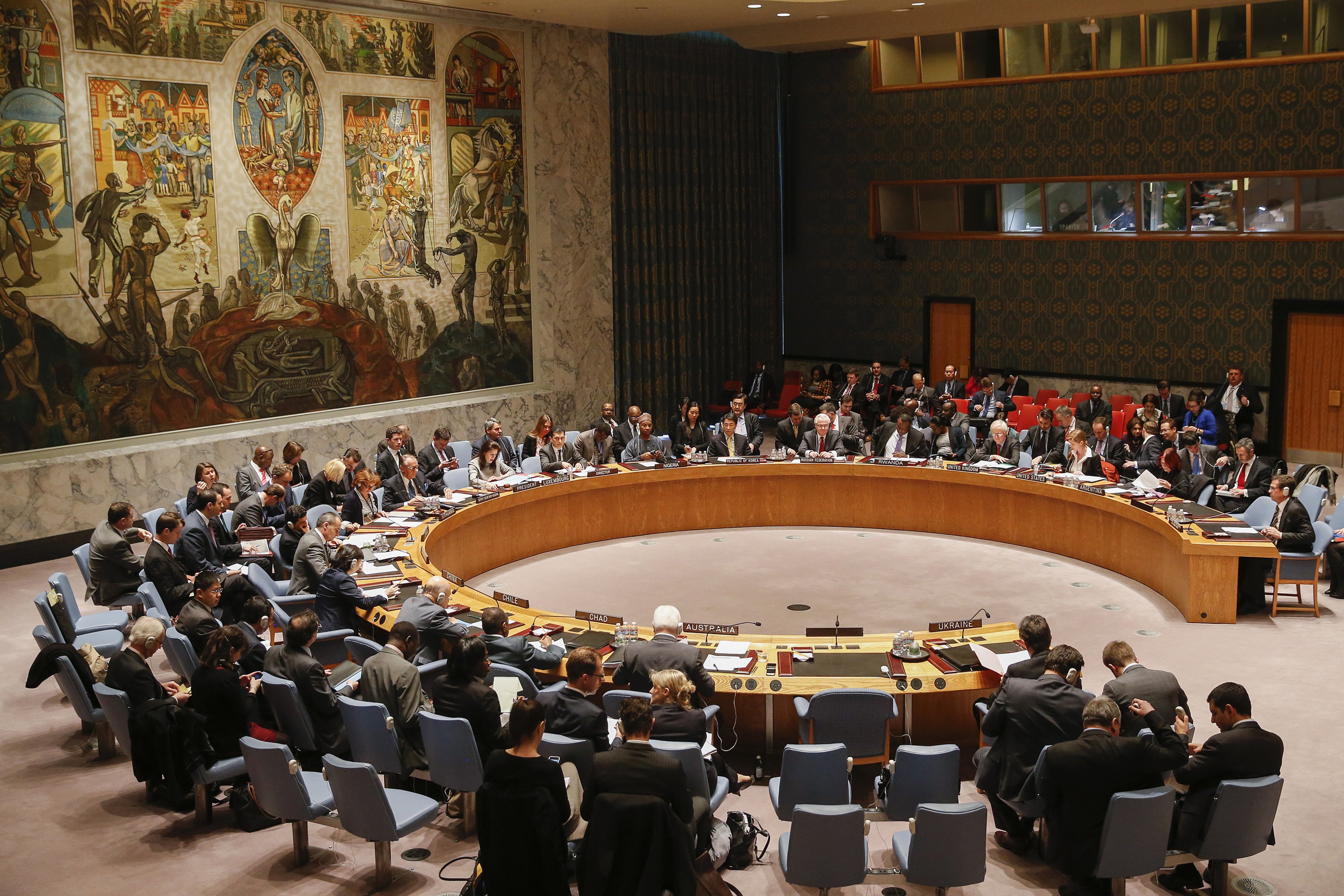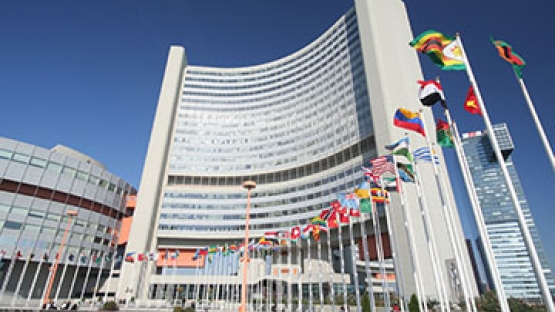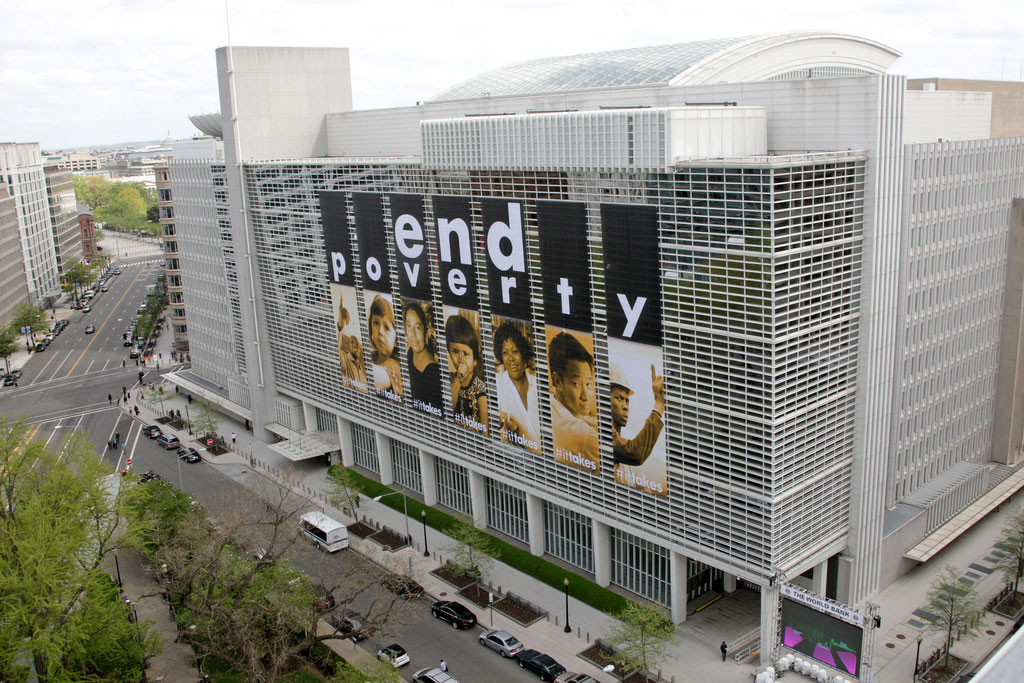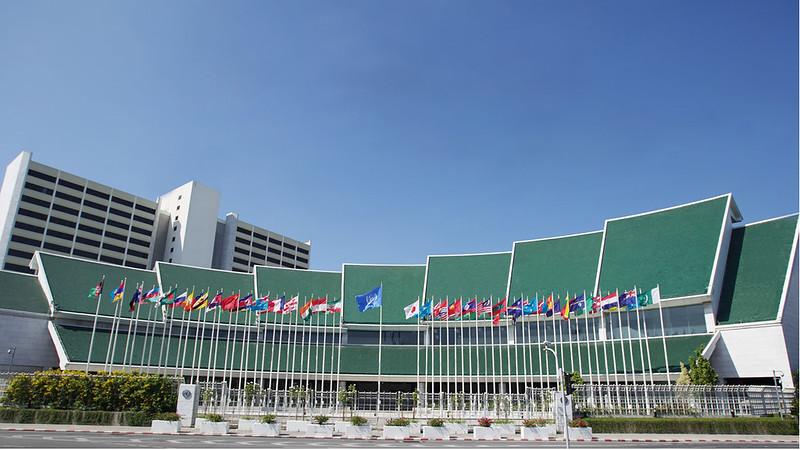
UNITED NATIONS SECURITY COUNCIL

Year of establishment: 1945
Members: 15 (5 permanent and 10 elected)
Headquarters: New York, USA
Website: https://www.un.org/securitycouncil
Agenda items:
- The Situation in the Middle East;
- Open agenda.
The Security Council was established in 1945 with the entry into force of the UN Charter. In accordance with the Charter, the Council has primary responsibility for the maintenance of international peace and security. Under the Charter, all Member States are obligated to comply with Council decisions. The Security Council takes the lead in determining the existence of a threat to the peace or act of aggression. It calls upon the parties to a dispute to settle it by peaceful means and recommends methods of adjustment or terms of the settlement. In some cases, the Security Council can resort to imposing sanctions or even authorize the use of force to maintain or restore international peace and security.
The Security Council also recommends to the General Assembly the appointment of the Secretary-General and the admission of new Members to the United Nations. Together with the General Assembly, it elects the judges of the International Court of Justice.
INTERNATIONAL ATOMIC ENERGY AGENCY GENERAL CONFERENCE

Year of establishment: 1957
Members: 178
Headquarters: Vienna, Austria
Website: https://www.iaea.org/
Agenda items:
- The Future of Atoms: Artificial Intelligence for Nuclear Applications;
- Nuclear Waste Management.
The International Atomic Energy Agency (IAEA) established in 1957 is the world's central intergovernmental forum for scientific and technical cooperation in the nuclear field. Its initial aim was to deal with nuclear technologies used as weapons or rather a practical and sufficient tool. It was enshrined to ensure international peace and security and promote peaceful means of atom utilization. Acting as an entity of the UN family IAEA contributes to the implementation of the Sustainable Development Goals (SDGs) as well as control the Member States nuclear armament and other applications of atomic resources.
The General Conference, consisting of representatives of the IAEA Member States meets in a regular annual session, usually in September, to consider and approve the IAEA's budget and to decide on other issues raised by the Board of Governors, the Director General and Member States. In conjunction with the General Conference, the IAEA regularly organizes a Scientific Forum on topics related to nuclear technology and science.
WORLD BANK

Year of establishment: 1945
Members: 189
Headquarters: Washington (DC), USA
Website: https://www.worldbank.org/en/home
Agenda item:
- Appraisal and approval of development projects.
The World Bank, established in 1945 with the aim to assist countries in rebuilding after the devastating World War II, is composed of two institutions: International Bank for Reconstruction and Development (IBRD) and International Development Association (IDA).
The World Bank works with Member States governments, the private sector, civil society organizations, and other international institutions on issues ranging from climate change to education and agriculture. All of these efforts support the World Bank’s twin goals of ending extreme poverty by 2030 and boosting shared prosperity of the poorest 40 percent of the population in all countries. Over 70 years of its existence, the World Bank has helped more than 100 developing countries by offering loans, knowledge, and advice.
World Bank Preparation guideline
THE ECONOMIC AND SOCIAL COMMISSION FOR ASIA AND THE PACIFIC

Year of establishment: 1947
Members: 53
Headquarters: Bangkok, Thailand
Website: https://www.unescap.org/
Agenda item:
- Use of digital technology and geospatial information systems to enhance resilience and promote sustainable development;
- Implementing Global Compact for Safe, Orderly and Regular Migration.
Being the regional commission supervised by the United Nations Economic and Social Council (ECOSOC), the Economic and Social Commission for Asia and the Pacific (ESCAP) was established in 1947 to provide a forum for governments of the Asia-Pacific region to review and discuss economic, social and environmental development issues, strengthen sub-regional and regional cooperation and to formulate common regional positions on global issues. The Commission, being comprised of 53 Member States, 30 of which are least developed, gathers annually in Bangkok.